Featured
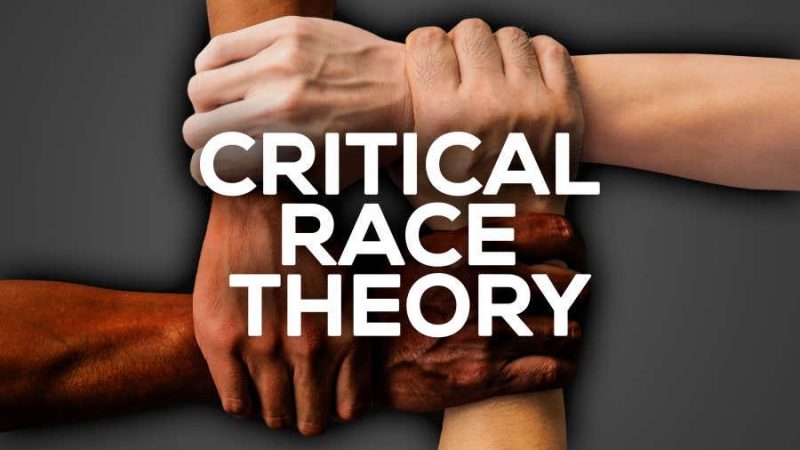 Critical race theory is a lens. Here are 11 ways looking through it might refine your view of history. By Eliott C. McLaughlin / CNN
Critical race theory is a lens. Here are 11 ways looking through it might refine your view of history. By Eliott C. McLaughlin / CNN
Critical race theory is just that — a theory — but the term has been weaponized, with its most extreme critics alleging that merely studying the theory is racist. Long before the concept dubbed CRT drew controversy, scholars were studying how bigotry and bias infiltrated American institutions and shaped American life. After all, any telling of American history cannot fairly ignore that 177 of the country’s 245 years — 72% of its existence, all but roughly three generations — played out under slavery or Jim Crow. As Kimberlé Crenshaw, a preeminent CRT scholar, put it: The theory is an approach to “grappling with a history of White supremacy that rejects the belief that what’s in the past is in the past.” Read more
Related: Florida’s Ron DeSantis Wants to Cancel Education About Systemic Racism. By John Nichols / The Nation
Political / Social
 The Myth of a Majority-Minority America. By Richard Alba, Morris Levy, and Dowell Myers / The Atlantic
The Myth of a Majority-Minority America. By Richard Alba, Morris Levy, and Dowell Myers / The Atlantic
In recent years, demographers and pundits have latched on to the idea that, within a generation, the United States will inevitably become a majority-minority nation, with nonwhite people outnumbering white people. In the minds of many Americans, this ethno-racial transition betokens political, cultural, and social upheaval, because a white majority has dominated the nation since its founding. But our research on immigration, public opinion, and racial demography reveals something quite different: By softening and blurring racial and ethnic lines, diversity is bringing Americans together more than it is tearing the country apart. Read more
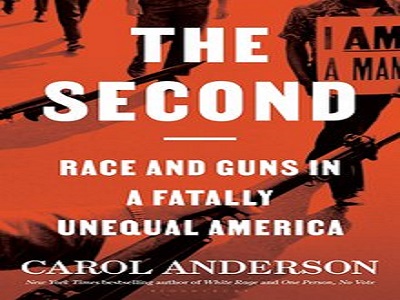 The White Right to Bear Arms. A review of “The Second: Race and Guns in a Fatally Unequal America.” By Emilo Leanza / The Progressive
The White Right to Bear Arms. A review of “The Second: Race and Guns in a Fatally Unequal America.” By Emilo Leanza / The Progressive
When Kyle Rittenhouse shot and killed two people and wounded a third with an assault rifle on the night of August 25, 2020, the police in Kenosha, Wisconsin, let him just walk away. The white seventeen-year-old was even able to drive from Kenosha to his home in Illinois before finally being arrested. By contrast, Philando Castile, a thirty-two-year-old Black man, was shot to death during a traffic stop in Falcon Heights, a suburb of Saint Paul, Minnesota, in 2016 for simply telling the officer that he was carrying a firearm. When it comes to the Second Amendment, the “right to bear arms” is not universal but, instead, almost always applies exclusively to white men. But it’s more than that, as Carol Anderson argues in The Second: Race and Guns in a Fatally Unequal America, because the deeper issue is that Black people, whether armed or unarmed, are treated by most of this country as a threat. Read more
 Attorney general announces actions to protect voting rights. By Clare Hymes and Grace Segers / CBS News
Attorney general announces actions to protect voting rights. By Clare Hymes and Grace Segers / CBS News
In response to the weakening of the federal voting rights law by the Supreme Court in 2013, Attorney General Merrick Garland made a commitment to expand the Justice Department’s efforts to protect voting rights, announcing a series of actions aimed at confronting state and local efforts that he said “will make it harder to vote.” Read more
Related: Advancing democracy abroad requires defending it at home. by E.J. Dionne Jr / Wash Post
Related: US history holds a chilling warning about restricting votes. By Jon Grinspan / CNN
 Family of Alton Sterling reaches $4.5 million settlement with Baton Rouge, years after police shooting. By Derek Hawkins / Wash Post
Family of Alton Sterling reaches $4.5 million settlement with Baton Rouge, years after police shooting. By Derek Hawkins / Wash Post
Sterling’s death was one of several high-profile incidents of police violence that set off a wave of racial justice protests during the summer of 2016 and prompted widespread cries for greater accountability from law enforcement. Hundreds of people were arrested during demonstrations in Baton Rouge. A mural of Sterling was painted at the Triple S Food Mart where he was killed. Read more
 Pulitzer Board Recognizes Darnella Frazier For Recording George Floyd’s Murder. By Joe Hernandez / NPR
Pulitzer Board Recognizes Darnella Frazier For Recording George Floyd’s Murder. By Joe Hernandez / NPR
Darnella Frazier, who was 17 when she recorded George Floyd’s murder in Minneapolis last year, was awarded a special citation by the Pulitzer Board on Friday. The video played a major role in igniting a global protest movement against police violence, and was used as evidence in the trial of Floyd’s killer. Committee officials who give out the prestigious prize in journalism and the arts said Frazier’s recording highlighted “the crucial role of citizens in journalists’ quests for truth and justice.” Read more
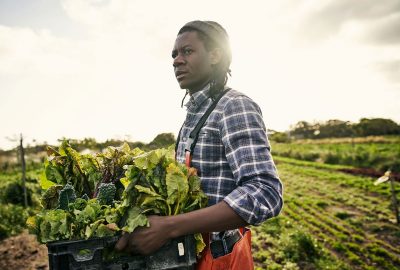 The USDA has discriminated against Black farmers for years. Can this legislation bring about change? By Ashlie D. Stevens / Salon
The USDA has discriminated against Black farmers for years. Can this legislation bring about change? By Ashlie D. Stevens / Salon
Sen. Cory Booker (D-N.J.) and Rep. Bobby Rush (D-Ill.) on Wednesday introduced new legislation that aims to lift “the veil of secrecy” surrounding the race and gender of farm subsidy recipients, with the ultimate goal of eradicating decades of discrimination against Black farmers by the U.S. Department of Agriculture (USDA). “Due to decades of discriminatory federal policies within the USDA, Black farmers have been consistently denied opportunities in farm assistance and lending,” Booker said in a press release. “This has led many Black farmers to lose millions of acres of farmland and robbed their families of building and passing on intergenerational wealth that the land represented.” Read more
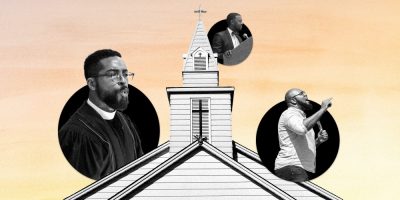 How Black pastors under 40 are trying to get their peers back into the pews. By Randi Richardson / NBC News
How Black pastors under 40 are trying to get their peers back into the pews. By Randi Richardson / NBC News
Empowerment Church in Southfield, Michigan, has a robust 1,000-member, mostly Black congregation. The Rev. Carlyle F. Stewart IV, 26, an associate pastor focused on youth and community outreach, however, says he sees the writing on the wall: His Black peers are abandoning traditional faith communities because they’re not finding solace in churches or meaning in religion in the same way their parents and grandparents have. Read more
 There’s a cure for the root cause of anti-Semitic attacks. By Michael Igel / CNN
There’s a cure for the root cause of anti-Semitic attacks. By Michael Igel / CNN
How do we create upstanders, and eliminate perpetrators, victims and bystanders? Education is the key. More states must continue to pass legislation mandating Holocaust education be taught in schools (18 states already do). To supplement these mandates, other states should follow Florida’s lead in implementing fact-based standards for all such Holocaust education. Also, as the number of living Holocaust survivors and rescuers continues to dramatically dwindle, now is the time for all of us to visit Holocaust educational institution to learn these stories of tragedy and triumph directly from the people who were there. Read more
 Morgan Freeman, professor donate $1 million to police reform center. By AP and USA Today
Morgan Freeman, professor donate $1 million to police reform center. By AP and USA Today
Actor Morgan Freeman and a criminal justice professor at the University of Mississippi are donating $1 million to the university to establish a Center for Evidence-Based Policing and Reform, the university announced Tuesday. The center created with the donation from Freeman and Professor Linda Keena will be the only one of its kind in Mississippi and one of only a few in the nation, the university said in its news release. The university’s Department of Criminal Justice and Legal Studies said the center eventually will train police from Mississippi and around the country. It will include training on how police can better engage the community in crime prevention. Read more
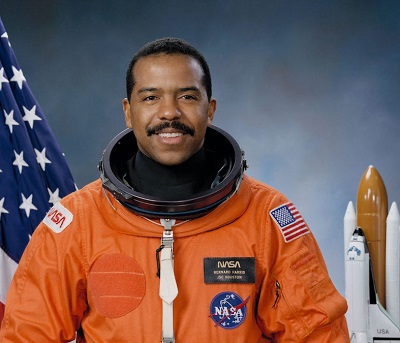 Meet the astronauts of color before NASA’s Artemis team. By Kristen Rogers / CNN
Meet the astronauts of color before NASA’s Artemis team. By Kristen Rogers / CNN
As a Black boy growing up in the Navajo Nation, Dr. Harris — now a retired NASA astronaut — said he found his passion for space when he admired the stars in the sky above him in that “magical land of grand canyons and painted deserts,” where his mother worked as an educator for the federal Bureau of Indian Affairs. “And I was inspired when I saw Neil Armstrong and Buzz Aldrin landed,” he added. “I said, ‘I want to do that.’” Harris is among those who helped pave the way for Artemis, NASA’s diverse astronaut team selected to prepare for future lunar missions — including sending the first woman and the next man to walk on the moon in 2024. This program, established in 2017, will also land the first person of color on the moon, a goal the Biden-Harris administration announced in April. Read more
Historical / Cultural
 My grandparents were stolen from their families as children. We must learn about this history. By Deb Haaland / Wash Post
My grandparents were stolen from their families as children. We must learn about this history. By Deb Haaland / Wash Post
Deb Haaland, the U.S. interior secretary, is the first Native American to serve as a Cabinet secretary. As I read stories about an unmarked grave in Canada where the remains of 215 Indigenous children were found last month, I was sick to my stomach. But the deaths of Indigenous children at the hands of government were not limited to that side of the border. Many Americans may be alarmed to learn that the United States also has a history of taking Native children from their families in an effort to eradicate our culture and erase us as a people. It is a history that we must learn from if our country is to heal from this tragic era. Read more
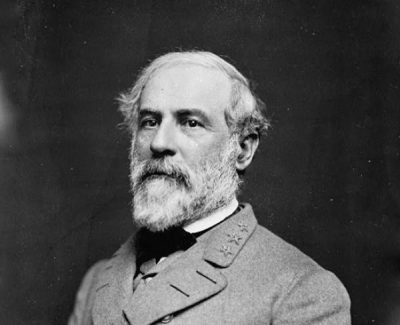 Descendants of Robert E. Lee and enslaved people unite for change. By CBS News
Descendants of Robert E. Lee and enslaved people unite for change. By CBS News
Visitors can return to Arlington House, The Robert E. Lee Memorial, starting on Tuesday. An extensive overhaul by the National Park Service brought together descendants of both General Lee and enslaved people who once lived and labored on his estate. It was a moment nearly 200 years in the making. But to get to that moment required taking many steps forward. Read more
Related: What Washington and Lee has embraced. Washington and Lee University’s board of trustees has decided to leave the school’s name unchanged. By Colbert I. King / Wash Post
 Understanding the Horror of Slavery Is Impossible. But a Simple Cotton Sack Can Bring Us Closer. By Rebecca Onion / Slate
Understanding the Horror of Slavery Is Impossible. But a Simple Cotton Sack Can Bring Us Closer. By Rebecca Onion / Slate
Perhaps you saw this object on display at the Smithsonian’s National Museum of African American History in the past few years—if you did, you won’t have forgotten it. It’s a cotton sack, much mended, with a hundred-year-old stitched notation: “ ‘My great grandmother Rose/ mother of Ashley gave her this sack when/ she was sold at age 9 in South Carolina/ it held a tattered dress 3 handfulls of/ pecans a braid of Roses hair. Told her/ It be filled with my Love always/ She never saw her again/ Ashley is my grandmother’—Ruth Middleton/ 1921.” This object, known as “Ashley’s Sack,” is the subject of historian Tiya Miles’ new book, All That She Carried: The Journey of Ashley’s Sack, a Black Family Keepsake. Read more
 How Interracial Marriage Became Legal In The U.S. By NPR
How Interracial Marriage Became Legal In The U.S. By NPR
When Richard and Mildred Loving awoke in the middle of the night a few weeks after their June, 1958 wedding, it wasn’t normal newlywed ardor. There were policemen with flashlights in their bedroom. They’d come to arrest the couple. “They asked Richard who was that woman he was sleeping with? I say, I’m his wife, and the sheriff said, not here you’re not. And they said, come on, let’s go, Mildred Loving recalled that night in the HBO documentary The Loving Story. The Lovings had committed what Virginia called unlawful cohabitation. Their marriage was deemed illegal because Mildred was Black and Native American; and Richard was white. Read more
 How Rosenwald schools transformed African-American education in the South. By Erica Davies / CBS News
How Rosenwald schools transformed African-American education in the South. By Erica Davies / CBS News
The story grew out of a friendship between Rosenwald, a son of Jewish immigrants, and noted educator Booker T. Washington, founding president of the Tuskegee Institute. Together, they sought to reverse years of inequality in education because of slavery and segregation. “This story are the pillars of my life,” explained Feiler. “The relationship between Julius Rosenwald and Booker T. Washington is the foundation of the Black-Jewish alliance that becomes a pillar of the civil rights movement.” In 1912, the duo launched a pilot program, building six schools in Alabama. They required local communities to donate the land and raise matching funds. The schools initially segregated students – something Rosenwald and Washington worked to change, according to Marian Coleman. Read more
 The Unwritten History of Black Performance. By Kelton Ellis / The Nation
After dark, last year, we all heard an unforgettable din: the sound of helicopters patrolling the night sky; adrenalized masses chanting in protest against the state’s anti-Blackness; a video, left eerily on loop, of George Floyd’s horrible plea for oxygen and kinship. As a sort of private respite, I turned to gospel. I’d grown up in, and come to reject such Baptist zeal but could not deny that the music in particular would always and forever stir a prayer in me. Shown is Aretha Franklin and her backup singers, the Sweet Inspirations, 1968. Read more
The Unwritten History of Black Performance. By Kelton Ellis / The Nation
After dark, last year, we all heard an unforgettable din: the sound of helicopters patrolling the night sky; adrenalized masses chanting in protest against the state’s anti-Blackness; a video, left eerily on loop, of George Floyd’s horrible plea for oxygen and kinship. As a sort of private respite, I turned to gospel. I’d grown up in, and come to reject such Baptist zeal but could not deny that the music in particular would always and forever stir a prayer in me. Shown is Aretha Franklin and her backup singers, the Sweet Inspirations, 1968. Read more  Tenement Museum Makes Room for Black History. / NYT
Tenement Museum Makes Room for Black History. / NYT
Now, as the museum celebrates its reopening with a block party on June 12, it is leaning hard into the story of the Black Joseph Moore. It is researching an apartment recreation dedicated to him and his wife, Rachel — its first dedicated to a Black family. And it is introducing a neighborhood walking tour called “Reclaiming Black Spaces,” which explores sites connected with nearly 400 years of African-American presence on the Lower East Side. Read more
 The Other Black Girl’ should be at the top of your summer reading list. By Naomi Jackson / Wash Post
The Other Black Girl’ should be at the top of your summer reading list. By Naomi Jackson / Wash Post
The publicity materials for Zakiya Dalila Harris’s debut novel, “The Other Black Girl,” describe the book as a literary mash-up of “The Devil Wears Prada” and “Get Out.” That sets the bar high with the promise of a cultural landmark — a novel that’s timely, hilarious, witty, mildly terrifying, emotionally textured and conversant on the social and political issues that Black women face in the world and the workplace. Is the novel worth the hype? Yes. It should be at the top of your summer reading list. Read more
 How “Kim’s Convenience” went from a beacon of representation to a lesson in racist storytelling. By Kylie Cheung / Salon
How “Kim’s Convenience” went from a beacon of representation to a lesson in racist storytelling. By Kylie Cheung / Salon
In a lengthy Facebook post, Simu Liu, who plays eldest son Jung Kim on “Kim’s Convenience,” detailed examples of racism that included racist storylines, “overwhelmingly white” writers and producers, a lack of opportunity for the show’s Asian actors to grow or influence and shape the show’s direction, and “horsepoop” pay for the predominantly Asian actors compared with the cast of fellow CBC show “Schitt’s Creek,” among other complaints. Liu also noted how, upon the show’s ending, a spinoff show was offered to its sole white actor, rather than any of the other Asian cast members. Read more
Sports
 Capitol Police Officer Will Throw First Pitch At A Nats Game. By Bill Chappell / NPR
Capitol Police Officer Will Throw First Pitch At A Nats Game. By Bill Chappell / NPR
U.S. Capitol Police Officer Eugene Goodman, hailed as a hero for his bravery during the attack on the U.S. Capitol, will throw out the first pitch at an upcoming Washington Nationals home game, the team says. Goodman is slated to throw the ceremonial pitch on June 18, when the Nationals kick off their weekend series against the New York Mets. Read more
 As NBA honors players’ activism, Kareem Abdul-Jabbar urges more action: ‘We’ve got work to do.’ By Candace Buckner / Wash Post
As NBA honors players’ activism, Kareem Abdul-Jabbar urges more action: ‘We’ve got work to do.’ By Candace Buckner / Wash Post
 Jim ‘Mudcat’ Grant, first Black pitcher to win 20 games in American League, dies at 85. By Wash Post
Jim ‘Mudcat’ Grant, first Black pitcher to win 20 games in American League, dies at 85. By Wash Post
Jim “Mudcat” Grant, the first Black 20-game winner in the American League and a key part of Minnesota’s first World Series team in 1965, died June 11 in Los Angeles. He was 85. His death was announced by the Minnesota Twins and the Cleveland Indians, another of his former teams. The cause was not disclosed. Mr. Grant spent less than four full seasons of his 14-year major league career with the Twins, but they were by far his best. He was in a trade with Cleveland on June 15, 1964. The following year, he had the finest season of his career, leading the American League with 21 wins. (Don Newcombe of the Brooklyn Dodgers was the first Black 20-game winner in the majors in 1951.) Read more
 Congress Urged To Act As States Start Allowing Outside Cash For Student Athletes. By Tom Goldman / NPR
Congress Urged To Act As States Start Allowing Outside Cash For Student Athletes. By Tom Goldman / NPR
College sports are about to change dramatically and Congress needs to act quickly in order to ensure fairness. That was the message Wednesday on Capitol Hill, at a lengthy senate hearing about new state laws that’ll allow college athletes to make money off the use of their name, image and likeness. The money would not be from the athlete’s school. On July 1, at least five state laws go into effect, allowing college athletes to, among other things, get paid for endorsements, personal appearances and content on social media. They’ll be able to hire agents. Read more
Site Information
Visit our home page for more articles, book/podcast and video favorites. And at the top of this page register your email to receive notification of new editions of Race Inquiry Digest. Click here for earlier Digests.
About Race Inquiry and Race Inquiry Digest. The Digest is published on Mondays and Thursdays.
Use the buttons below to share the Digest in an email, or post to your Facebook, Linkedin or Twitter accounts.